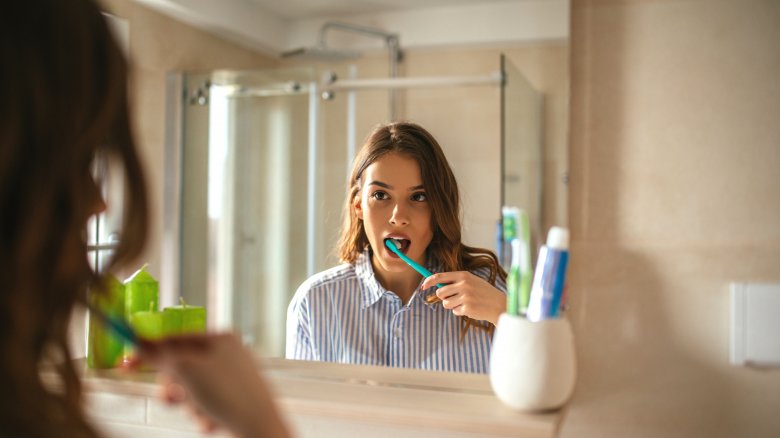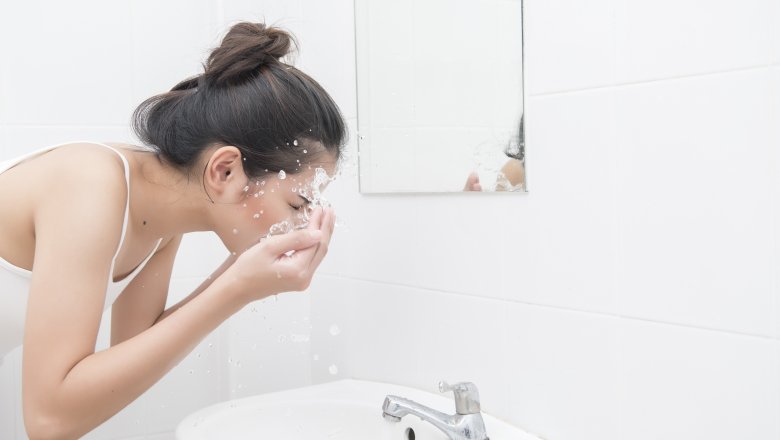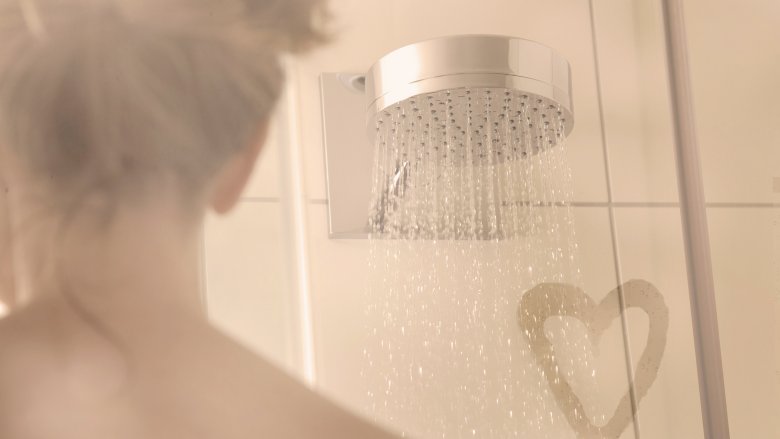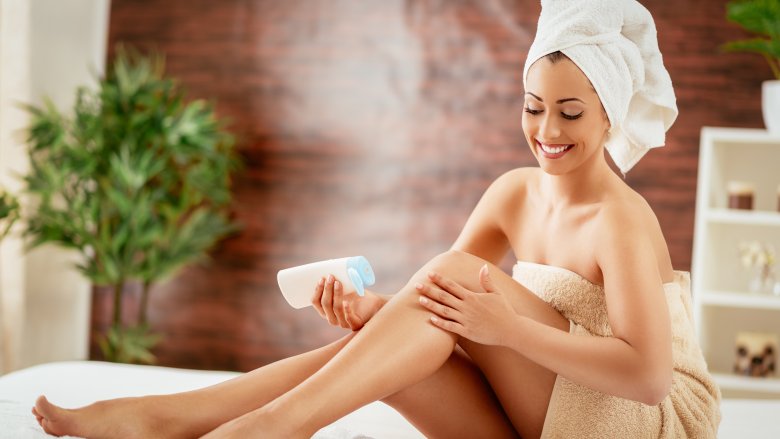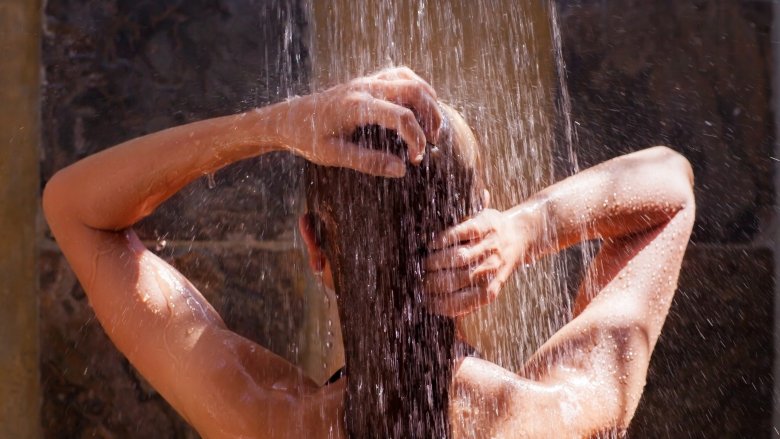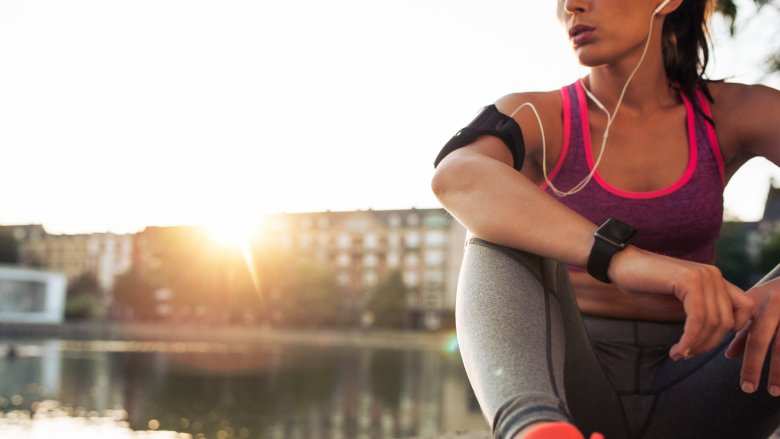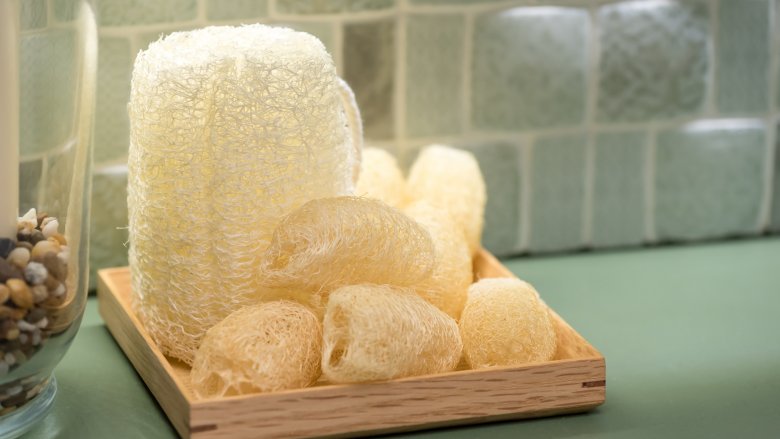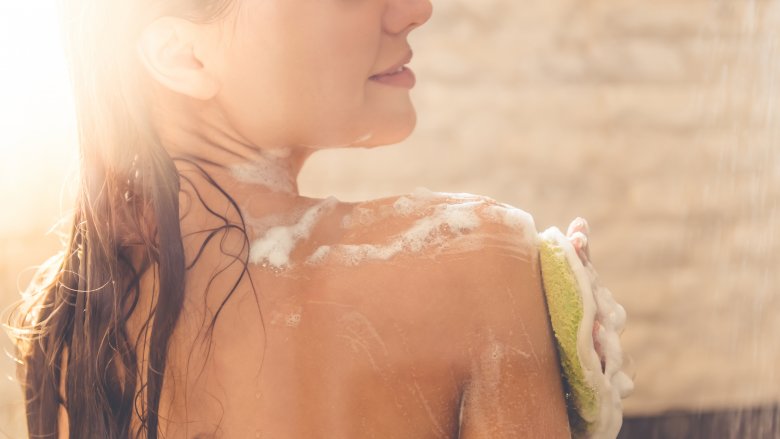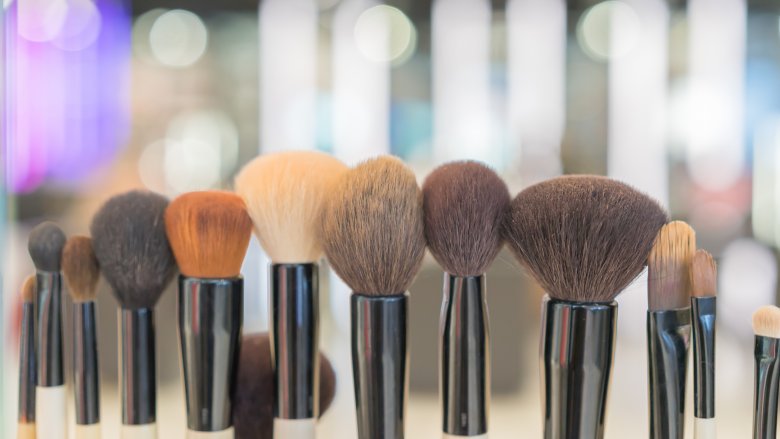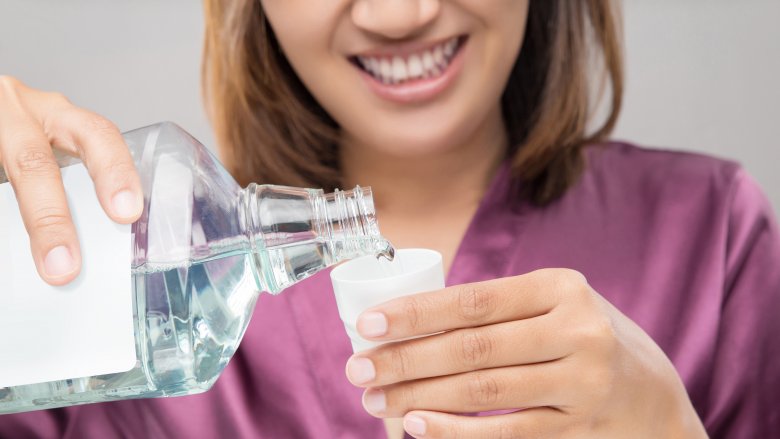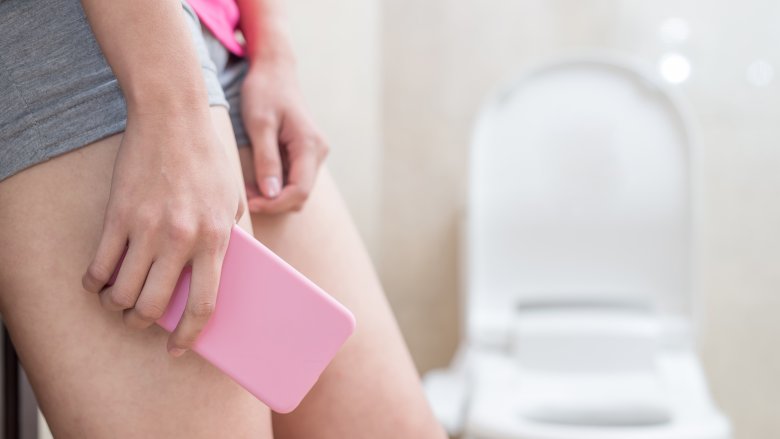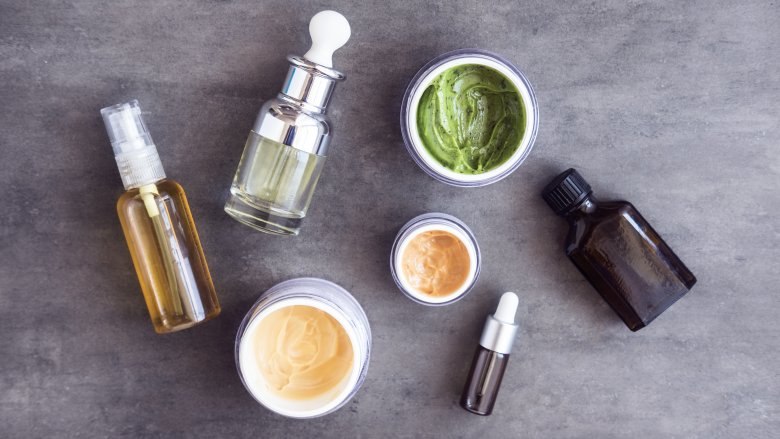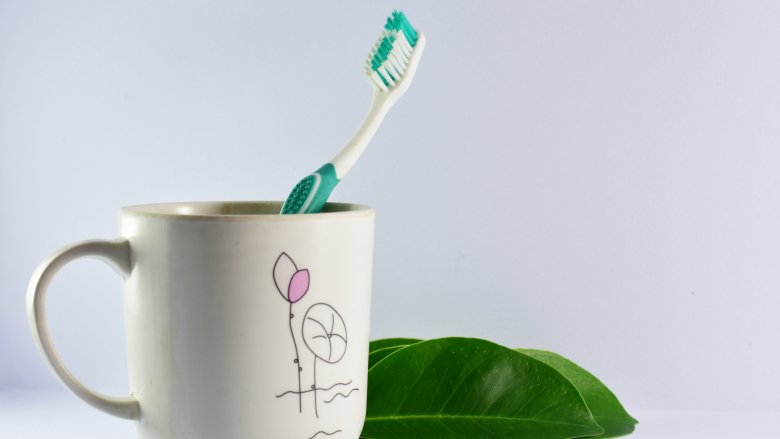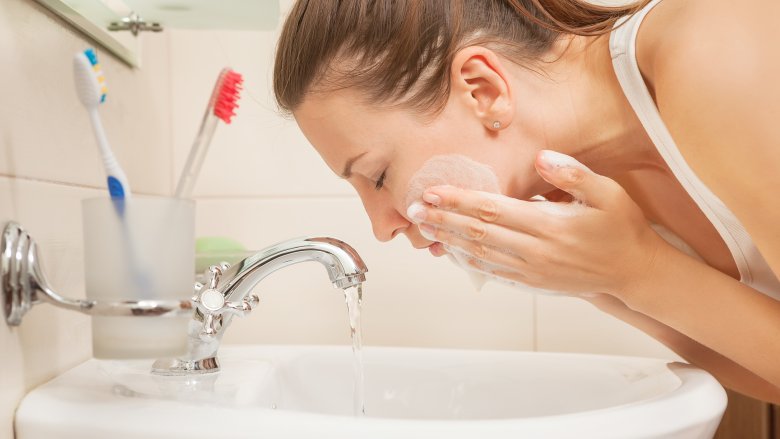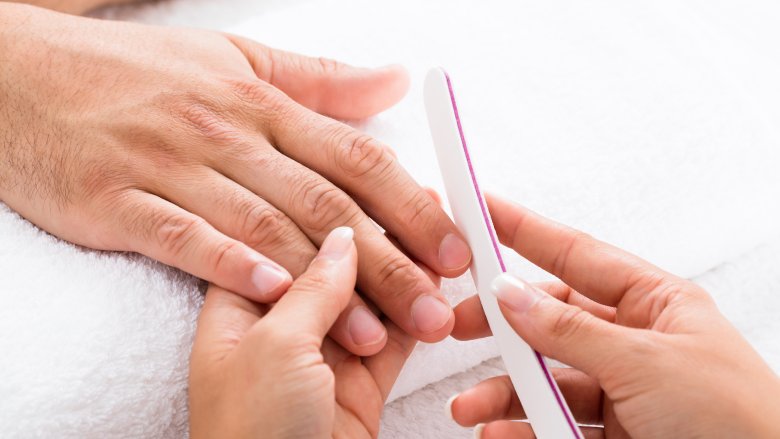Personal Hygiene Mistakes You May Be Making Right Now
Most of us feel pretty confident in our hygiene plans. We've all been through middle school health class and we know we have to shower and occasionally cut our toenails. However, healthy personal hygiene isn't always that simple. There are some personal hygiene mistakes that are easy to make, and you probably don't even realize they are mistakes. From resting your face in your hands to washing your skin every day, you are causing harm to your skin without knowing it.
Resting your face in your hands
How often do you find yourself touching your face or resting your face in your hands? Each time we do that, we add dirt to our faces.
"Don't rest your face in your hands. It transfers the dirt and grime, as well as stretches the skin," explained Dr. Neal Schultz, New York City dermatologist. "More importantly, any repetitive touching directly contributes to clogging and breakouts by pushing oil, dirt, debris, and dead cells into the pores, and also causes a slight thickening of skin, which also contributes to clogging and breakouts."
This is a habit that is tough to break, so just start trying to notice how often you rest your face in your hands. Then focus on finding different ways to sit to keep your face clean and pores clear.
Washing your face after a workout
Washing your face after a workout feels refreshing and seems like the hygienic thing to do. However, it's best to splash some water on your face before your workout.
"When it comes to washing your face, do it pre-workout, not post-workout. Yes, pre-workout," said Dr. Schultz. "When you perspire, you tend to wipe your skin, which means you wipe in and rub in the grime, the dirt, and the oils that were there, and that aggravates acne. Wash them off before you do your sports. After you've perspired, you've only made water and salt, and water and salt is harmless on the skin and won't aggravate your acne."
Taking hot showers
There's nothing better than stepping into a hot, steamy shower on a cold morning. However, even though it feels great, that hot water isn't doing your skin any favors. "Everyone likes a little heat in their showers, but avoid scalding hot showers," advised Dr. Schultz. "The hot water opens the pores, which promotes water loss and also washes away the skin's protective emollient oils, further compounding water loss." Combined, that can all result in dry, itchy skin. Dr. Schultz suggests taking warm showers instead.
But if you're a scalding hot shower addict, start by moving the faucet to the cold side ever so slightly. As you adjust to the temperature, work your way down to warm showers.
Applying lotion too late after a shower
Raise your hand if this happens to you: when you're getting ready in the morning, you hop out of the shower and rush to start your day. You usually don't take time for lotion, knowing you can always do it later. Sound familiar? If it does, we've got some bad news for you: that afternoon lotion is not going to be as effective as it could've been right after the shower.
"On the topic of showers, be sure to not wait too long post-shower to apply your moisturizer," Dr. Schultz told me. "Pat your skin dry, don't rub it, and then apply your moisturizers to help lock in moisture that was picked up during bathing. The moisturizer should be applied liberally as a lotion over the body and a cream vehicle on the face."
Using soap in the shower everyday
Winter is a rough time for anyone with dry skin. It seems like no matter how much lotion you apply, your hands are still going to feel dry and cracked. But rather than applying more lotion, you probably just need to use less soap.
"If you're battling dry skin during cold, harsh winters, try less frequent use of soap in the shower or bath (except personal areas, as those should be sudsed up daily)," explained Dr. Schultz. "Reduce using soap to non-perineal areas to one to two times per week."
Skipping sunscreen in the winter
We've heard it from our dermatologists before, but it's time to start really taking sunscreen seriously all year round. "This should be common sense by now, but it's worth repeating. It's a non-negotiable to use an effective sunscreen 365 days a year—rain, snow, or sun," shared Dr. Schultz.
Look for a good tinted moisturizer or foundation with SPF to help yourself remember daily sunscreen. As an added bonus, you'll have sunscreen at the ready if you decide to take a mid-winter vacation to a warm and sunny locale.
Not showering after a workout
Most of us would jump in the shower immediately after a 20 mile run, but sometimes after a 20 minute jog, we take our time making our way to the bath. However, any time you sweat, it's important to get out of those clothes right away.
"Sweat easily becomes trapped inside tight-knit clothing, leading to acne, irritation, and other problems. Showering after a workout is ideal, because the less time bacteria have a chance to sit on your skin, the better," Board Certified Dermatologist and RealSelf contributor Joel Schlessinger told us. "Wash your body with an antibacterial body wash, focusing on any areas where your skin touched the exercise equipment or anywhere you're prone to breakouts (like the chest and back). I like products that contain bleach, a natural antibacterial agent that eliminates germs and bacteria without the worsening of antibiotic resistance."
If you can't get to a shower right away, don't worry. Make sure to change out of your sweaty clothes right away and shower when you can. Schlessinger added: "If you're prone to acne and can't shower right away, keep cleansing wipes in your gym bag to eliminate oil and acne-causing bacteria on the face."
Never replacing your loofah
You know that loofah of yours that is literally falling apart as we speak? When and where did you buy it? If you can't answer those questions, it's safe to say it's time for a new one.
"Washcloths and loofahs can harbor bacteria, mold, and yeast, among other harmful things. Make sure you allow your loofah to dry completely each time and replace it frequently," said Dr. Schlessinger. "If you cleanse with a washcloth, grab a fresh one every day and don't use it on your face. This is very irritating to the skin and ends up causing dry areas, breakouts, and even sores."
Only showering in the morning
A morning shower is a nice ritual and gently wakes you up after a night of sleep. While there is nothing wrong with showering before work, it may be healthier to shower at the end of your day.
"Showering at night can help you sleep better and keeps your sheets cleaner. By washing off all of the dirt, oil, and impurities that have gathered on your skin throughout the day, you'll be able to maximize your beauty sleep," explained Dr. Schlessinger. "Getting a clean start in the evening is especially beneficial for allergy sufferers, because it washes away the pollen and other impurities they have come in contact with throughout the day."
Create a new nighttime ritual of a calming shower with lit candles and aromatherapy. You may never go back to morning showers!
Never cleaning your makeup brushes
Cleaning your makeup brushes is one of those things that sounds great in theory, but never actually happens. A deep clean once in awhile only takes a few minutes, but can save your skin from dirt and bacteria over the years.
"If not properly cleaned, makeup brushes can carry hordes of bacteria that can cause serious damage to the skin," said Dr. Schlessinger. He added: "buildup that gathers on dirty makeup brushes causes them to deteriorate quicker, affecting your makeup application. Clean makeup brushes are the most important step to creating a flawless makeup look."
Wash your brushes with a gentle soap and water, then allow them to lie flat to dry.
Using mouthwash
Mouthwash seems like a healthy practice to have, but it can be too harsh for some. "Alcohol-based mouthwashes actually tend to dehydrate the mouth," Dr. Chris Kammer told us. "In turn, drier conditions are a breeding ground for bad bacteria. Better to use an alcohol-free mouth rinse with xylitol, such as Spry, which actually stimulates saliva production to help wash away the bad stagnant bacteria."
Looking at your phone in the bathroom
It sounds gross, but raise your hand if you've ever pulled out your phone while hanging out in the bathroom. You probably did it without thinking, not realizing how much bacteria could have landed on your screen.
"The cell phone in the bathroom can keep you entertained, but it picks up loads of bacteria that you are putting on your face," Dr. Elizabeth Trattner told us. "Take special care not to take the phone into a bathroom and toilet, especially a public bathroom as you can pick up bacteria on your phone that can cause acne, and if you don't wash your hands and phone properly, put you at risk of picking up other bacteria that can make you sick, especially stomach and viral issues."
Using green beauty products
Green beauty and natural wellness products are hot right now, but they are not as stable as the more common products, so it's important to treat them differently. "If you are switching to any green beauty products, please get small bottles and keep them away from heat," advised Dr. Trattner. "These very sensitive products have a fast shelf life and expire quickly. Heat from the bathroom can make them rancid or expire. Make sure lids are tight and sealed as well. Rancid green beauty products are like food and should be treated the same way. You don't want expired or products that have turned on your face!"
Without chemicals and preservatives to keep them clean and lasting long, green beauty products need to be replaced more often. Read labels carefully and store them in a cool place.
Brushing your teeth right after coffee
We know coffee isn't great for our teeth. You probably don't love it when the dentist points out the tan stains. Our natural inclination is often to brush off the coffee soon after we drink it, but doing so actually harms our teeth.
"Although it is recommended to clean your teeth at least 20 minutes after snacking on foods and drinks high in carbohydrates and sugars, an additional ten minutes is needed before you brush your teeth after eating or drinking something acidic," Dentist Danica Lacson told us.
"The right time to grab your toothbrush and give your teeth a refreshing two-minute brush is 30 minutes after eating foods containing acid like oranges, [and] lemons, among others. Foods and drinks, especially when acidic, decrease the pH level inside your mouth, and it will take some time for it to return to the average level. Brushing immediately after eating acidic foods can weaken the enamel and cause damage to the protective layer that can make the teeth susceptible to cavities and gum disease."
You may be itching for a toothbrush if you're walking into an important meeting after drinking your morning coffee, but resist the toothpaste and reach for water instead.
Over-washing your skin
Washing your skin to remove dirt and bacteria will keep it healthy, but over-washing it can quickly cause problems. Our skin has natural oils that are beneficial, so if we wash those oils away every day, we're missing out.
"Sudsing cleansers strip the skin's natural oil-based shield, and disrupts its colonies of healthy bacteria, leaving the skin dry, exposed to the environment, and more prone to inflammation and disease," Denise Cartwright, master esthetician and developer of CRUDE Personal care told us.
"Your microbiome communicates directly with the immune system, letting it know exactly what the skin needs. When you remove these bacteria, you miss out on the many natural skincare benefits they offer. Sudsing cleansers also leave you reliant on synthetic moisturizers to replace the natural oils that they strip, so ditching the suds can save you money and time be reducing the amount of products you need."
Forgetting to clean your nails
You probably wash your hands regularly throughout the day, but how long do you spend at the sink? Many of us rush through the process and get back to work. It's vital to really cleanse your hands, and that includes cleaning out your fingernails, too.
"I have seen some beautiful hands and nails that are disgusting underneath," warned Dr. Trattner. "Bacteria and dirt can linger underneath nails, and if you touch your figure or put your hands in your mouth, it is a fast gateway into your digestive system."
